Hot or cold, a cup of herbal tea is a refreshing drink any time of day. Naturally free from caffeine, herbal teas can also be rich in health-boosting antioxidants, vitamins and minerals. Herbal teas are often calorie free as well – depending of course on whether you add anything to sweeten it!
If you are new to herbal teas, there are plenty to choose from out there - all with different flavors and potential health benefits. Many herbal teas are also made by long established and ethical manufacturers. In this article we look at some of the best herbal tea brands and delve into some of the herbal tea ingredients to see what evidence there is for how they may support our health and well-being.Quick Comparison: Top 10 Best Herbal Tea Brands
1. Traditional Medicinals Organic Roasted Dandelion Root Herbal Leaf Tea
Able to support healthy digestion and gently stimulate the liver, the Traditional Medicinals organic roasted dandelion root (16 tea bags) is made with pharmaceutical grade herbs. This tea is also Non-GMO Project Verified and Kosher.
This tea has a mildly bitter flavor and some long time drinkers have commented that the tea bags do not contain as much root as they used to and so they are having to use two bags to make the same strength of brew. Some of the tea bags may also be flawed - allowing the root to spill out when brewing.Pros
Cons
2. Dandy Blend Instant Herbal Beverage with Dandelion
Free from caffeine, dairy, wheat and sugar, the Dandy Blend instant herbal beverage with dandelion (7.5 oz) is also free from acidity and bitterness. Made with chicory, which may have some potential benefits for high blood pressure, this blend is free from any GMOs and pesticides and can be used in place of coffee in drinks and recipes.
Although free from wheat, this blend is not certified gluten free as it does contain barley and rye extract. It does have a light coffee flavor to it, but this lighter flavor will not suit everyone who wants to switch from coffee to an herbal alternative. There is also a risk of the pouch arriving damaged.Pros
Cons
3. Celestial Seasonings Bengal Spice Herbal Tea
The caffeine free six pack of Celestial Seasonings Bengal Spice herbal tea (20 tea bags) is infused with cinnamon, cardamom, clove and ginger for a chai flavor. Cinnamon is thought to work as a potent anti-inflammatory, and it may have an impact on blood sugar levels. It is also made with roasted chicory, black pepper, vanilla and nutmeg. This herbal tea is free from gluten and the tea bags are sustainable and free from staples.
This herbal tea can have quite a rich cinnamon flavor which may not be to everyone’s taste and there can be a risk of the tea bags arriving damaged. The ingredients also contain ‘natural flavors’ but what these flavors are is not published on the packaging.Pros
Cons
4. Kiss Me Organics Dandelion Root Tea Detox Tea
Made from raw dandelion root to preserve its enzymes, vitamins and minerals, the Raw Organic dandelion root tea (20 tea bags) is naturally free from caffeine and may help support natural metabolism and function as an anti-inflammatory. This herbal blend also includes Ceylon cinnamon and hibiscus. This tea has been certified RAW organic and is tested independently for its purity. The company make these test results available to the public.
It can be difficult to open the individual wrappers without damaging the tea bag and there can also be problems with the seams on the bags. Compared with a roasted dandelion root tea, you may also find that this raw dandelion root tea lacks flavor.Pros
Cons
5. Yogi Tea Green Tea Blueberry Slim Life
Made with green tea, organic hibiscus and blueberry, the six pack of Yogi Tea green tea blueberry slim life (16 tea bags) is also Non-GMO Project Verified. This herbal tea is also made with Garcinia Cambogia, ginseng and Eleuthero roots to help support an active lifestyle.
The bags are individually wrapped and compostable, and the tea is also vegan, kosher and gluten free. As this blend is made with green tea, it does contain caffeine though (35 mg) and some drinkers have found that this tea may cause some minor discomfort such as headaches.Pros
Cons
6. Harney & Sons Organic Rooibos Herbal Tea
Free from any caffeine, the USDA certified organic Harney & Sons organic rooibos (20 tea bags) is also kosher. Rooibos does have a distinctive and deeper flavor which may not be to your taste and you may need to sweeten its flavor.
Pros
Cons
7. Organic India Tulsi Original Tea Bags
Certified USDA Organic and Non-GMO Project Verified, this twin pack of Organic India Tulsi original (18 bags) is also Fair Trade, kosher and halal. It is also free from any caffeine. The tea bags are not always sealed properly which increases the risk of stray tea in your cup and the bags are not currently compostable.
Pros
Cons
8. Moringa Source Herbal Tea Bags
The GMO-free and USDA organic Moringa Source raw Moringa oleifera tea bags (30 bags) is also caffeine free, sugar free, gluten free and has no additives. Moringa is a leaf which is rich in calcium, potassium and vitamins A, B1 and C and may help boost energy levels as well as supply antioxidants. These tea bags are made in the US and are USDA Process Verified. You may find the taste of this herbal tea bitter or lacking in flavor; some drinkers prefer to blend this with another herbal for extra flavor or even sweeten it.
Pros
Cons
9. Teeccino Coffee French Roast Organic Chicory Roasted Herbal Tea
Made from herbs and caffeine free, the pack of four Teeccino Roasted Herbal Tea French roast (10 bags) is also free from any GMO ingredients, certified organic and soy free. These individually wrapped tea bags are also kosher, vegan and acid free.
This coffee replacement is made with roasted chicory root, ramon seeds, carob and barley. It is also rich in antioxidants, potassium and inulin - a prebiotic soluble fiber. Some of the tea bags may be damaged on arrival making it difficult to brew them and the bags can also be prone to tearing when using.Pros
Cons
10. Jason Winters Classic Blend Herbal Tea
Containing chaparral, red clover and a special herbal spice, the Jason Winters Tea original herbal blend (5 oz) is free from any artificial colors, flavors or preservatives. This blend has a very distinctive flavor which may not suit all taste buds and as this does contain chaparral - which the FDA and Health Canada have advised consumers against using - some drinkers may wish to avoid this in their diet.
Pros
Cons
Things to Consider Before Buying Herbal Tea
Herbal tea can only officially be a tea if it is made with leaves from the Camellia sinensis, or tea plant. Perhaps the more appropriate name should be tisane, or infusion, but today, herbal tea is the most common name to describe teas which are not actually teas!
Herbal teas have been drunk for thousands of years and there are documents form Ancient China and Ancient Egypt detailing herbal teas and their medicinal benefits. Usually a herbal tea is a blend of flowers, fruits, vegetables, herbs, spices and any other form of botanical. Some of these teas can be complex with various ‘active’ ingredients, while others such as peppermint or nettle, are simple and just made with one ingredient.
Some Key Herbal Tea Ingredients
Most herbal teas are free from caffeine, although some may have low amounts of naturally occurring caffeine, depending on what ingredients are in the herbal tea. Many herbal tea ingredients are linked with health; here are just some ingredients which may offer benefits to health and wellbeing:
Blueberry
An antioxidant rich fruit, there have been some early links between blueberry and reducing the risk of and treating type 2 diabetes. Blueberry may also function as an anti-inflammatory and blueberry tea has shown potential to help improve learning, thinking and memory in people of different ages.
Chicory
Chicory is rich in the antioxidant beta-carotene (which converts to vitamin A in the body). It has been linked with disorders such as osteoarthritis and hypertension, although at present, there remains insufficient evidence for chicory as being effective for these and other disorders. Chicory can work as a mild laxative and may decrease swelling in the body.
Cinnamon
There are two types of cinnamon – Cassia (or regular) and Ceylon (or true) which has a less bitter and lighter taste. Cinnamon contains many antioxidants and it may be able to work as a potent anti-inflammatory. It has also been shown to improve some of the risk factors for heart disease.
Cinnamon can also affect blood sugar levels and act as an anti-diabetic. There have also been some laboratory studies which have shown promising results of cinnamon being able to reduce cancer cell growth.
Dandelion
Dandelion is rich in several antioxidants and anti-inflammatories. Some of these may help reduce inflammation-related diseases, although as yet, there is no clear medical link. Dandelion may also help reduce higher levels of lipids and it can work as a natural diuretic. There is a risk of some people being allergic to dandelion, especially if they have an allergy to similar plants such as daisies or marigolds.
Hibiscus
Hibiscus may help lower blood pressure. One study showed that after six weeks of drinking hibiscus tea, study participants had a decrease in systolic blood pressure. Hibiscus may also be able to help lower levels of fat in the blood.
Rooibos
Rooibos (or red bush) comes from the leaves of the Aspalathus linearis shrub which grows in South Africa. When the leaves become oxidated during processing they turn a burnt-red color, and this gives rooibos its sweet aroma. Rooibos is high in antioxidants - molecules known to be pro-active against heart disease, diabetes, cancer and many other disorders.
Tulsi (Holy Basil)
Used in Ayurvedic medicine, Tulsi, grows in various countries including India. Although Tulsi has been linked with many conditions, there remains a lack of evidence to support its effects. There has been some early studies showing some success with Tulsi seed oil to slow the progression of certain cancers in some animals and also improve their survival rates. There have also been some positive early findings around blood sugar levels in diabetics and decreasing some of the symptoms of stress.
Side Effects of Herbal Teas
The FDA does not regulate herbal teas, their ingredients or any other types of herbal supplements. This means that any side effects or potential interactions with prescription medications may be unknown. Some herbals can increase the side effects of some medicines, stop them from breaking down in the body properly or even stop the drug from working as it should do.
If you take prescription medications, you should let your medical professional know which herbal teas you drink or want to start drinking; just to be sure that the herbal tea will not interfere with your medications.
Herbal Teas and Pregnancy
Although herbal teas can be an extra source of nutrients such as calcium, the FDA recommends caution when drinking herbal teas during pregnancy.
The American Pregnancy Association reports that reasonable amounts of commercial herbal teas are thought to be safe and some manufacturers only use herbs and botanicals from FDA published guidelines. Herbal teas which may be unsafe are those with excessive amounts of particular herbs, any herbs known to be toxic and teas which have not been made commercially.
Some teas are sold as pregnancy teas, often containing red raspberry leaf this may help prevent some complications during pregnancy. Peppermint or ginger can help relieve some stomach discomfort and lemon balm may have a calming effect.
Although nettle can often be in blends, it is rated as ‘likely unsafe’ in the natural medicines database, although some sources state that nettles can be beneficial during pregnancy.
Penny royal, licorice root, slippery elm bark and chicory root should always be avoided. Chamomile should be used with caution or not at all if you have allergies to plants such as chrysanthemums which are in the same plant family. Yellow dock and alfalfa are ‘possibly unsafe’ also.
It is always worth checking with your medical professional before consuming any types of herbal tea during pregnancy.
Storing Herbal Teas
Herbal teas are sensitive to light, heat and humidity. They are best stored where humidity is 55% or lower. If you do live in a humid area and do not use continuous A/C or have a storage area with a dehumidifier, you may want to buy smaller amounts of teas more often to prevent them degrading.
The ideal temperature for storage is between 65°F and 75°F, avoiding any fluctuations from this range.
Herbal tea is best stored in an air-tight container such as a tin to protect it from light and contain its odors. If you prefer to use a glass container, then darker glass is better as this will help protect against light.
Conclusion
In this article we have looked at some of the potential benefits from drinking a range of herbal teas. We have also looked in a little detail around how safe herbal teas are during pregnancy and why it is important to let your medical professional know if you drink herbal teas when on any medications.
Some of the best herbal tea brands may well contribute to health and wellbeing; at the very least they offer a caffeine free and low or no-acid alternative to a cup of coffee or black tea. They can also be zero calorie, making them popular for many dietary or lifestyle needs. We hope that you have enjoyed this article and you now feel confident to try a herbal tea; or if you are a regular herbal tea drinker, then we hope that we have offered you some options of a different herbal taste.
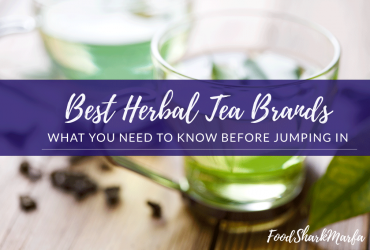
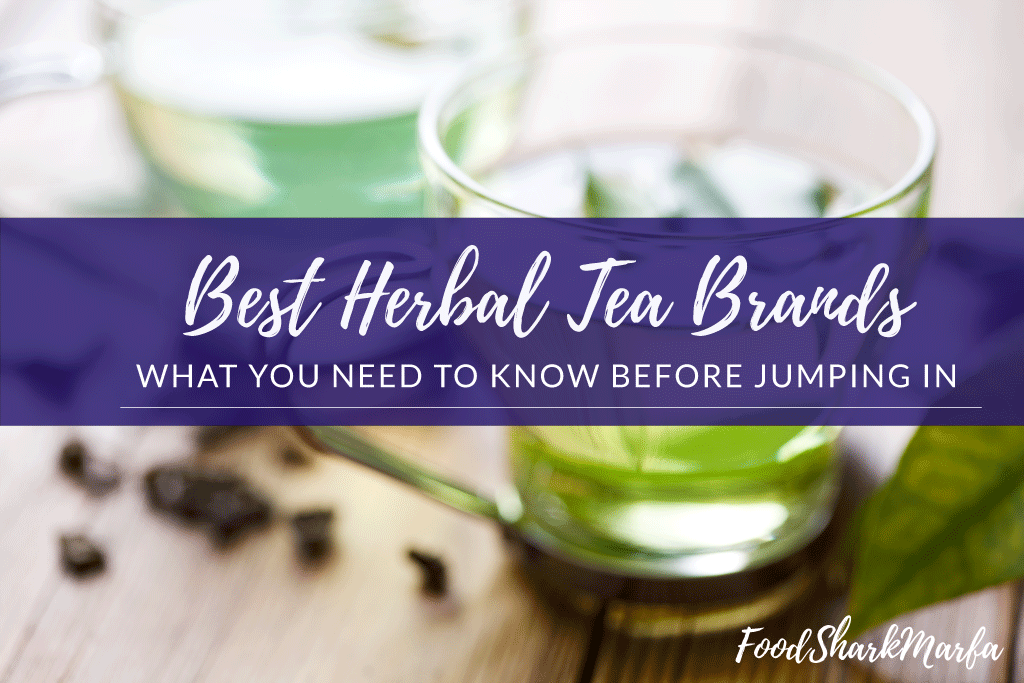
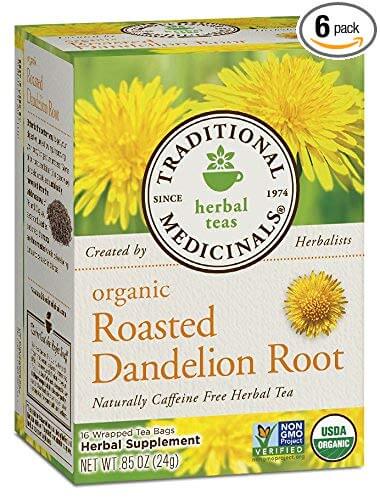
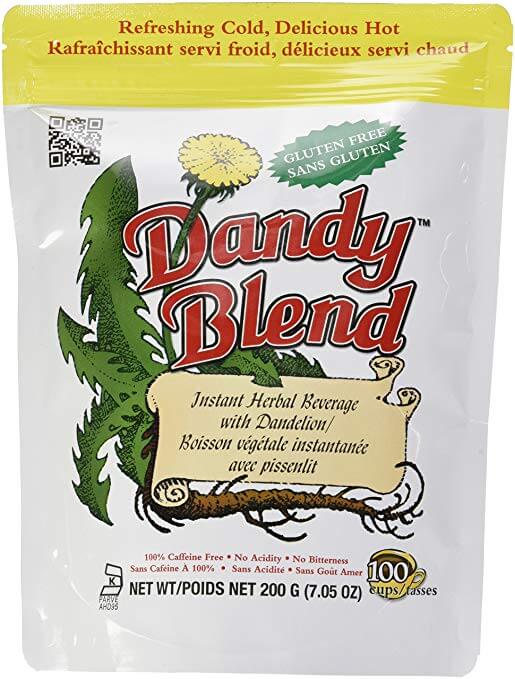
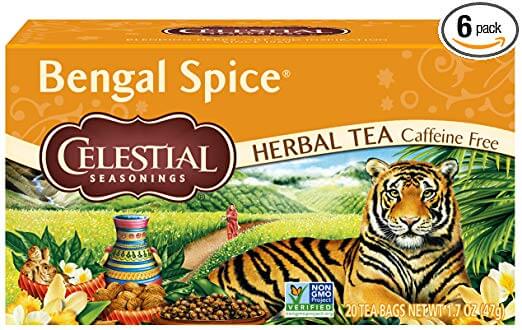
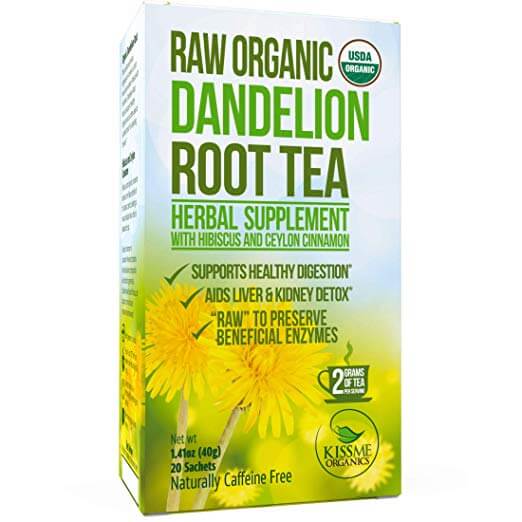
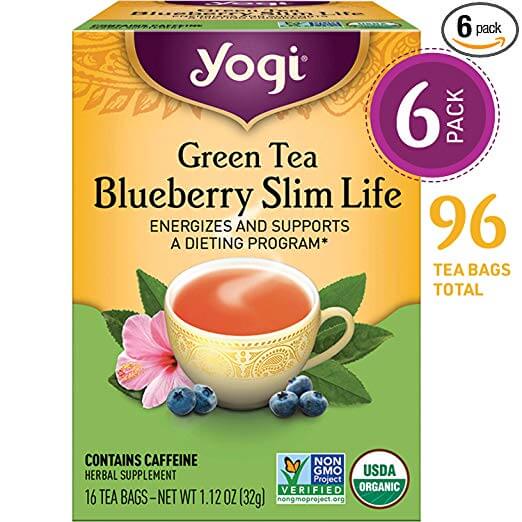
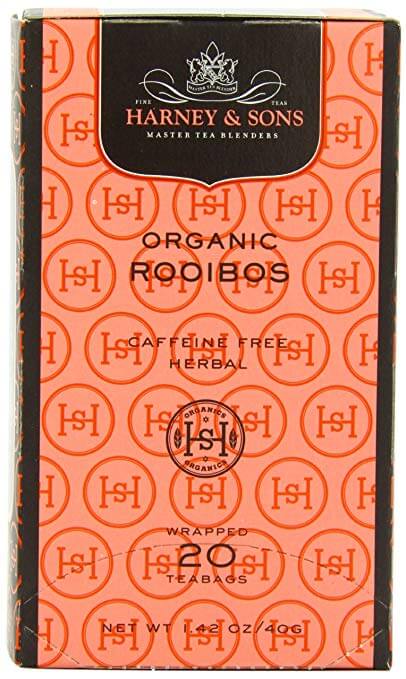
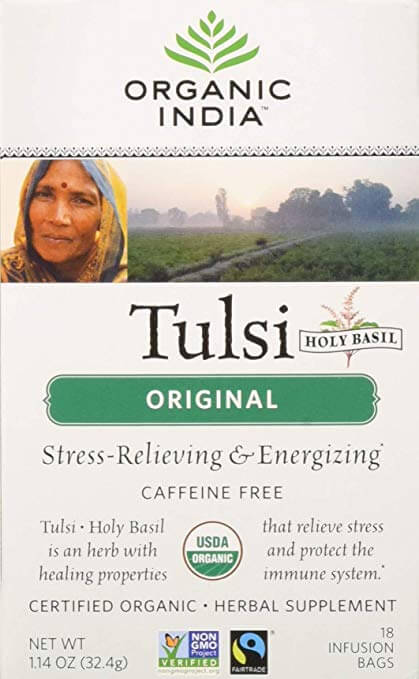
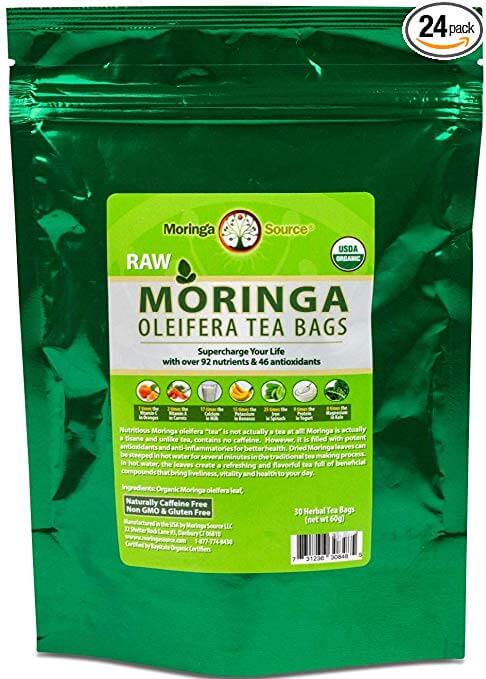
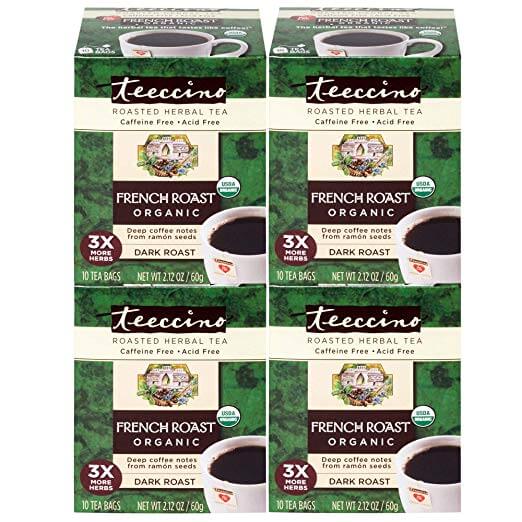
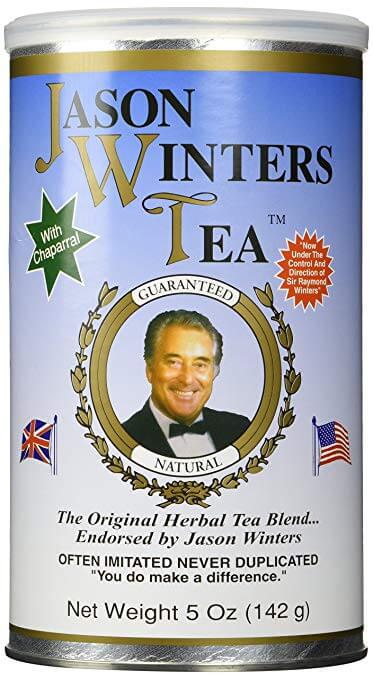

Related Posts
The 10 Best Green Teas in 2023
The 10 Best Oolong Teas in 2023
The 12 Best Detox Teas in 2023